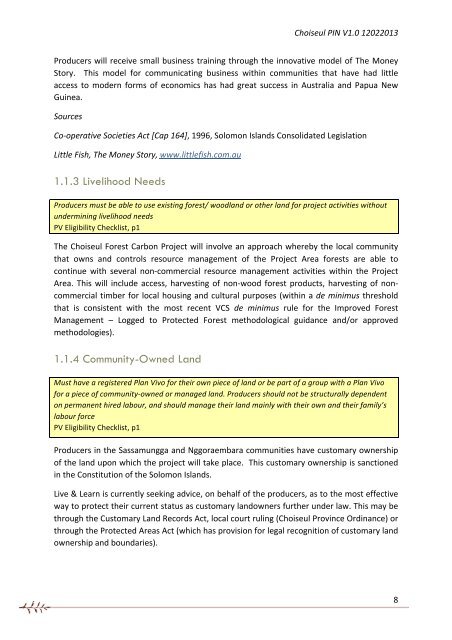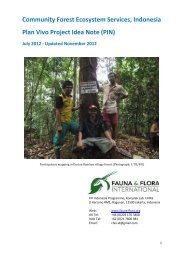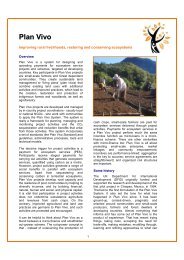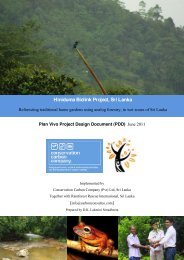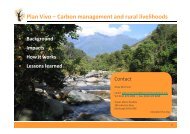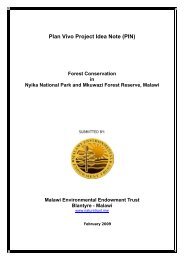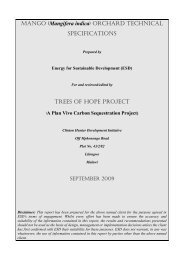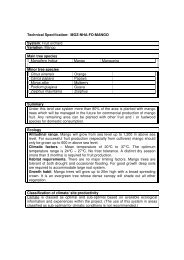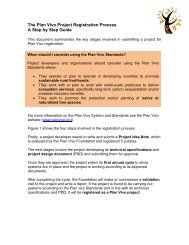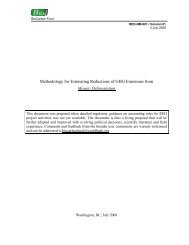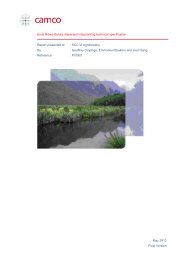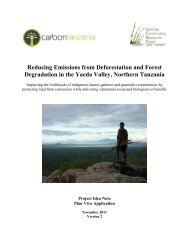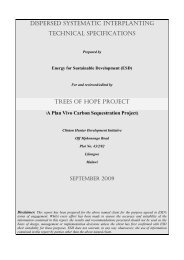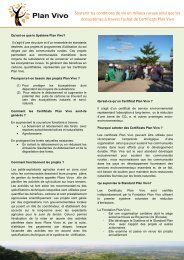Download PIN - Plan Vivo
Download PIN - Plan Vivo
Download PIN - Plan Vivo
- No tags were found...
Create successful ePaper yourself
Turn your PDF publications into a flip-book with our unique Google optimized e-Paper software.
Choiseul <strong>PIN</strong> V1.0 12022013 Producers will receive small business training through the innovative model of The Money Story. This model for communicating business within communities that have had little access to modern forms of economics has had great success in Australia and Papua New Guinea. Sources Co-‐operative Societies Act [Cap 164], 1996, Solomon Islands Consolidated Legislation Little Fish, The Money Story, www.littlefish.com.au 1.1.3 Livelihood NeedsProducers must be able to use existing forest/ woodland or other land for project activities without undermining livelihood needs PV Eligibility Checklist, p1 The Choiseul Forest Carbon Project will involve an approach whereby the local community that owns and controls resource management of the Project Area forests are able to continue with several non-‐commercial resource management activities within the Project Area. This will include access, harvesting of non-‐wood forest products, harvesting of non-commercial timber for local housing and cultural purposes (within a de minimus threshold that is consistent with the most recent VCS de minimus rule for the Improved Forest Management – Logged to Protected Forest methodological guidance and/or approved methodologies). 1.1.4 Community-Owned LandMust have a registered <strong>Plan</strong> <strong>Vivo</strong> for their own piece of land or be part of a group with a <strong>Plan</strong> <strong>Vivo</strong> for a piece of community-‐owned or managed land. Producers should not be structurally dependent on permanent hired labour, and should manage their land mainly with their own and their family’s labour force PV Eligibility Checklist, p1 Producers in the Sassamungga and Nggoraembara communities have customary ownership of the land upon which the project will take place. This customary ownership is sanctioned in the Constitution of the Solomon Islands. Live & Learn is currently seeking advice, on behalf of the producers, as to the most effective way to protect their current status as customary landowners further under law. This may be through the Customary Land Records Act, local court ruling (Choiseul Province Ordinance) or through the Protected Areas Act (which has provision for legal recognition of customary land ownership and boundaries). 8


